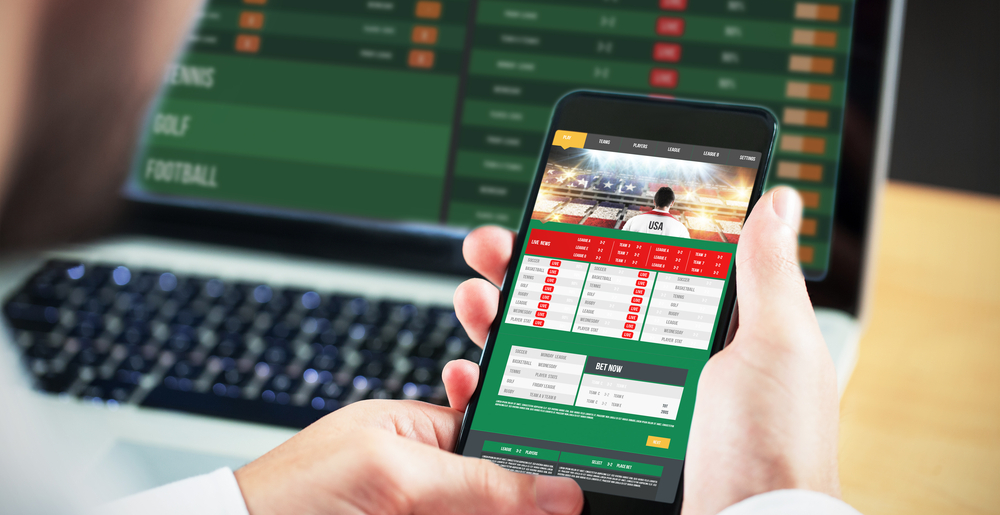While the state of Maryland has had access to gambling for years, including the lottery, race track betting, and casinos, in December 2021 sports betting became legal in Maryland. Voters approved legal sports betting in Maryland in November 2020 and state legislators passed bills to allow for legal sports gambling in April 2021. It was in December of 2021 that the first retail sportsbook opened in the state of Maryland.
Two years after voters decided to allow for legalized sports betting in Maryland, online sports gambling became legal. Sportsbooks like FanDuel and DraftKings, known as platforms for what is known as Daily Fantasy Sports (DFS), along with online sportsbooks from casinos like MGM, are now available for Maryland residents to place daily sports wagers. With only two weeks before the Kansas City Chiefs and Philadelphia Eagles play in Super Bowl LVII, there is little doubt that millions of dollars will be wagered by Maryland residents with online sportsbooks.

With gambling access only increasing in Maryland, it begs the question of what will happen with those people who may be problem gamblers or who are already in the grips of a gambling addiction? Because gambling, like other addictive behaviors, is a dangerous behavioral health issue that can cause terrible consequences for those individuals at risk for problem gambling or gambling addiction. Unfortunately, unlike things like drug addiction, alcoholism, or traditional mental health or psychiatric disorders, there really isn’t a rehab or treatment center that someone can check into if they have a problem with gambling. Additionally, “gambling addiction” or “problem gambling” really isn’t a specialty that a local therapist, counselor, or psychiatrist could directly treat and patient or client for if a person needed help.
Gambling is basically considered a “process addiction.” A process addiction, sometimes referred to as a behavioral addiction, is a behavior categorized by an overwhelming impulse to engage in a certain behavior despite negative consequences. Similar to gambling, other type of process addictions include shopping addiction, sex and love addiction, technology addiction, gaming addiction, social media addiction, internet addiction, exercise addiction, porn addiction, food addiction, work addiction, and spending addiction. While there are certain treatment facilities or therapists that have specialties in treating process addictions, there are few that specialize in gambling addiction.
So, where do problem gamblers turn to find help if they recognize they are suffering from a gambling addiction in Maryland? Well, the first step might be to contact The Maryland Center of Excellence on Problem Gambling (www.mdproblemgambling.com.) An organization that is part of the University of Maryland School of Medicine, located in Baltimore, Maryland, The Maryland Center of Excellence on Problem Gambling is a program funded by the Maryland Department of Health’s Behavioral Health Administration that promotes healthy and informed choices regarding gambling and problem gambling. The organization accomplishes that mission through public awareness, training and education, prevention, technical assistance t the behavioral health care system, peer recovery support, research and public policy. It offers multiple resources for those that feel they may have an issue with gambling. The best way to reach out is by going to the website or by calling 1-800-GAMBLER (1-800-426-2537). Additionally, one of the best resources available on the website for The Maryland Center of Excellent on Problem Gambling is the interactive Find a Counselor option, which allows users to find therapists or counselors that can offer direct clinical services for those suffering from gambling addiction throughout the entire state of Maryland, broken down by county. Click here (https://www.mdproblemgambling.com/find-a-counselor/) to access that resource.
One important thing to recognize is that drug addiction or alcoholism often go hand-in-hand with problem gambling. Individuals that suffer from gambling addiction often also deal with a co-occurring substance use disorder and have difficulty with drugs and alcohol. So, finding a therapist, counselor, or addiction treatment center that can offer treatment for addiction or substance use disorder should also have a clinical team well-versed in the impact and behaviors associated with problem gambling or gambling addiction. If the individual dealing with a gambling addiction also has a problem with substances like drugs and alcohol, it may be vital to initially address the substance use disorder and, once separated from substances, the individual can also begin to work concurrently while in treatment on the problem gambling and associated behaviors. Typically, different therapeutic approaches and modalities will be used to address the gambling addiction, including psychotherapy and cognitive behavioral therapy (CBT). There are also prescription medications that can be utilized by a psychiatrist to help address some of the underlying mental health issues typically associated with problem gambling and other process addictions. Like drug addiction, the key to overcoming gambling addiction is identifying and understanding the underlying causes and conditions of the behavior, and address them directly, as well as managing triggering behaviors and thoughts, regulating emotions, and managing obsessive compulsive thoughts and behaviors.
If you or someone you know needs help for addiction or co-occurring disorder issues, please give us a call. Maryland Addiction Recovery Center offers the most comprehensive dual-diagnosis addiction treatment in the Mid-Atlantic area. If we aren’t the best fit for you or your loved one, we will take the necessary time to work with you to find a treatment center or provider that better fits your needs. Please give us a call at (866) 929-4318 or email our team at info@marylandaddictionrecovery.com.
